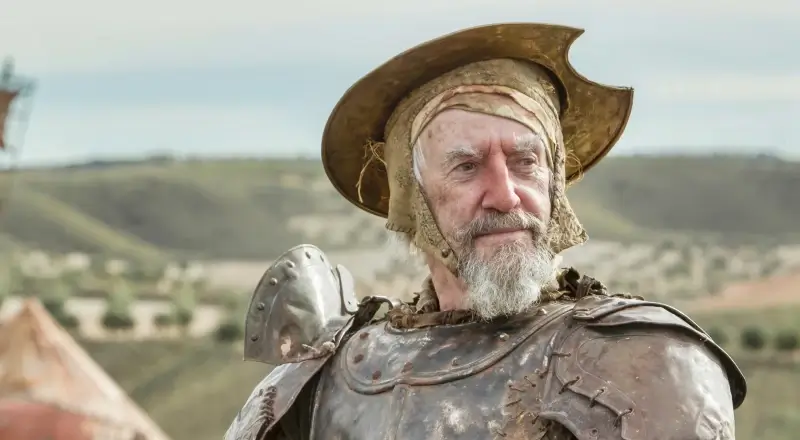
Character Analysis
(Avoiding Spoilers)
Grew Up... as Alonso Quixano, a well-off and well-educated Spanish gentleman. Now retired, Quixano refuses to spend his time relaxing and reading. Instead, he traipses the countryside with an old horse and a fat farmer.
Living... as Don Quixote, a wandering knight out to right wrongs and free innocents. After reading a few too many books of chivalry, the formerly respectable Quixano decided that he wanted to take the next step and live in one. Donning a rusty suit of armor and dubbing himself "Don Quixote," he heads out on his brave steed, Rocinante, ready to prove himself in fearsome battle.
Profession... knight-errant. With squire Sancho Panza, a nearby farmer Quixote lures into his service by promising him governorship of an island, they journey into the wilderness to avenge the innocent, slay giants-turned-windmills, and woo fair maidens.
Interests... glory, God, and good. Although his neighbors may scoff, Quixote knows the gravity of his duty, telling Sancho that, "God brings His children to heaven by many paths: chivalry is a religion, and there are sainted knights in Glory."
Relationship Status... enamored with the fair lady Dulcinea del Toboso, who coldly spurns his advances. Part of this may be because, as Sancho points out, Dulcinea is actually a neighboring farm girl who has no idea who Don Quixote is. But, such talk is obviously nothing but vile and treasonous slander.
Challenge... facing the toils of knighthood and the scorn of his neighbors. Although Quixote set out to become a knight, his greatest achievement thus far is becoming the town laughingstock. Neighbors’ mock him, his housekeeper is convinced he is mad, and even his squire is skeptical of Quixote’s schemes. Quixote laments, “I was born to be an example of misfortune, and a target at which the arrows of adversary are aimed.” Still, he's certain his suffering will not be in vain.
Personality... noble, stubborn, and more than a little deluded. Though more intelligent than Sancho, Quixote clearly lacks Sancho's common sense– something that would come in handy when he's rushing to attack windmills or free dangerous prisoners. Still, while chivalry ended in seventeenth-century Spain, Don Quixote is determined to champion it.
